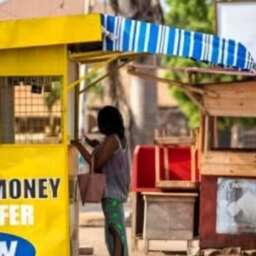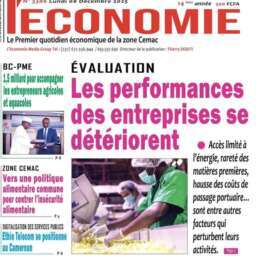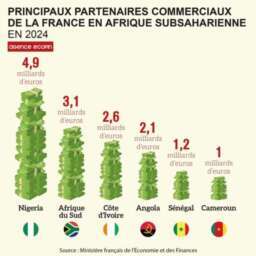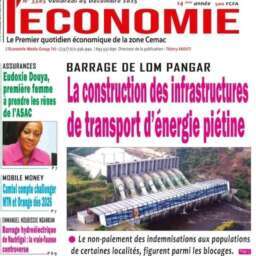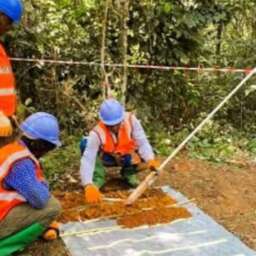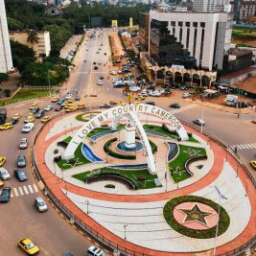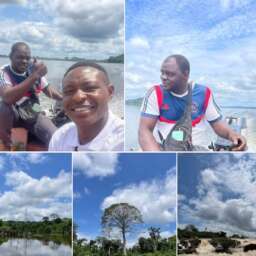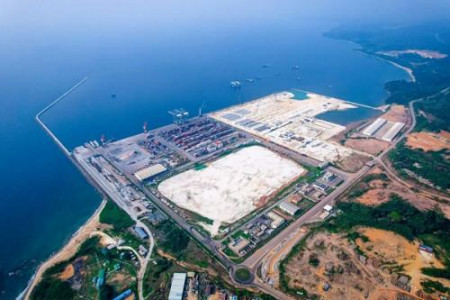(Business in Cameroon) – The inauguration of the second container terminal at Cameroon’s Kribi deep-sea port on May 9, 2025, was tempered by persistent concerns over critical, long-delayed infrastructure, notably the deteriorating Edéa-Kribi road and the stalled railway project intended to link the coastal city. Despite the celebratory atmosphere, key port stakeholders emphasized the urgent need for these overdue transport connections, deeming them vital for Kribi port to fully realize its potential.
Nicolas Sartini, Vice President of Mediterranean Shipping Company (MSC), the world’s leading container shipping firm, highlighted the port’s future. “When Kribi is connected to Edéa by a proper road and rail line, it will be able to compete with the world’s top ports in terms of container throughput,” he stated. MSC, which acquired Bolloré’s African transport and logistics assets in 2022, is now the majority stakeholder in Kribi Conteneurs Terminal (KCT) through Africa Global Logistics (AGL), the company operating Kribi’s container terminals.
Kribi’s Growing Global Stature
In a testament to Kribi’s increasing significance in global trade, MSC recently incorporated the port into its new Africa Express shipping line. This move deploys MSC’s largest container vessels to establish a direct maritime corridor between Asia and West Africa, a route expected to significantly boost trade between the two regions, which has seen substantial growth in recent years.
However, local leaders argue that to fully capitalize on this opportunity, the rehabilitation of the Edéa-Kribi road – an expressway long promised but never delivered – and the construction of a railway line remain critical. Patrice Melom, Managing Director of the Port Authority of Kribi (PAK), directly addressed the Minister of Transport officiating the ceremony. “I must take this opportunity to highlight pressing concerns raised by key actors in the Kribi port community,” Melom said. “The port’s connectivity is a decisive factor in achieving the ambitious targets we’ve set. We urge swift implementation of the government’s existing initiatives – such as the paving of the Ebolowa-Kribi axis, full rehabilitation of the Edéa-Kribi road, and the effective launch of the Edéa-Kribi rail line.”
Amid increasing calls for infrastructure development, Philippe Labonne, President of AGL, signaled strong support for the Cameroonian government. “We can finance this industrial zone – and even the railway,” said Labonne, whose group is already a strategic partner in developing Kribi’s port-industrial complex. Beyond KCT, AGL is also the main shareholder of Camrail, Cameroon’s rail operator, and holds railway concessions in several other African countries.
A Strategic National Asset
Operational since March 2018, the Kribi deep-sea port features a draft of 16 meters, positioning it as one of West Africa’s most strategic maritime infrastructures. The first phase of the project, costing approximately 250 billion CFA francs, included a 350-meter container terminal and a multipurpose terminal. The recently completed second phase added a 715-meter container terminal, effectively tripling Kribi’s handling capacity from 300,000 TEUs to nearly 1 million TEUs annually, at an estimated cost of 400 billion CFA francs. A planned third phase will introduce two new terminals: one for minerals and another for hydrocarbons.
In just seven years of operation, the Kribi port has attracted over 200 billion CFA francs in foreign direct investment, generated more than 1.2 trillion CFA francs in customs revenue, and handled 60 million tons of cargo. The PAK reports that Kribi now accounts for one-third of Cameroon’s container traffic, serves as a leading transshipment hub for containers bound for Douala, and has created 15,000 jobs, including 10,000 indirect positions. These impressive figures are expected to climb significantly in the coming years, particularly if the port is finally integrated into a modern, multimodal transport network.
Brice R. Mbodiam












